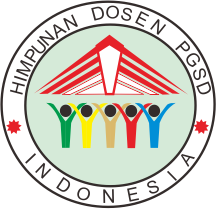The Leadership Style of Muhammadiyah Elementary School Headmasters
DOI:
https://doi.org/10.30595/dinamika.v12i1.6595Keywords:
Leadership Style, Headmaster, Elementary SchoolAbstract
This research aims to describe the headmaster’s leadership style at SD/MI (Primary School) Muhammadiyah in Banyumas Regency. This is a descriptive qualitative research. Subjects in this research are headmasters and teachers at SD/MI Muhammadiyah in Banyumas Regency, namely MI Muhammadiyah Wangon, SD Muhammadiyah Cipete, and MI Muhammadiyah Pasirmuncang. Data collection technique used in this research is interview. Data validity is checked using technique of source triangulation. The findings show that the leadership style implemented by headmasters at SD/MI Muhammadiyah in Banyumas Regency is a democratic leadership style. This is shown in the way the headmasters carry out their leadership function. For example, as a leader, the headmaster gives information, evaluation, motivation, and innovation for school development, runs situational and non-authoritarian leadership, behaves wisely, and gives directions, examples, as well as rewards. The headmaster always prioritizes a sense of unity and togetherness with the school community. The headmaster uses a strategy of getting close to the community. In dealing with problems, the headmaster solves them calmly and gracefully and discusses them in deliberations in accordance with the development of the problem, and after the decision the problem can be resolved properly. Moreover, the school principal is open to accepting opinions, criticisms and suggestions from staffs.References
[1]. Baharun Hasan (2017). Peningkatan kompetensi Guru Melalui Sistem Kepemimpinan Kepala Madrasah. Jurnal Ilmu Tarbiyah. 6(1), 1-26
[2]. Danim, Sudarwan. (2010). Kepemimpinan Pendidikan. Bandung: Alfabeta.
[3]. Gusman Hagi Eka (2014). Hubungan Gaya Kepemimpinan Kepala Sekolah Dengan Kinerja Guru Di SMP N Kecamatan Palembayan Kabupaten Agam. Jurnal Bahana Manajemen Pendidikan. 2 (1), 293-301
[4]. Kartono, Kartini. (2002). Pemimpin dan Kepemimpinan. Jakarta: PT RajaGrafindo Persada.
[5]. Moedjiono. (2002). Kepemimpinan dan Keorganisasian. Yogyakarta: UII Press.
[6]. Moleong, Lexy J. (2005). Metodologi Penelitian Kualitatif. Bandung: PT Remaja Rosdakarya.
[7]. Muhaimin. (2010). Pengembangan Kurikulum Pendidikan Agama Islam di Sekolah. Jakarta: Rajawali Pers.
[8]. Mulyasa. (2011). Menjadi Kepala Sekolah Profesional. Bandung: PT Remaja Rosdakarya.
[9]. Nurkolis. (2003). Manajemen Berbasis Sekolah. Jakarta: PT Grasindo.
[10]. Purwanto, Ngalim. (2010). Administrasi dan Supervisi Pendidikan. Bandung: PT Remaja Rosdakarya.
[11]. Sari Dewi Puspita (2013). Kontribusi Gaya Kepemimpinan Kepala Sekolah dan Motivasi Berprestasi Guru Terhadap Mutu Pendidikan Di Gugus Rama 2 UPT Disdikpora Kevamatan Kembang Kabupaten Jepara. Jurnal Manajemen Pendidikan. 2(1), 92-104
[12]. Sudharta Vonny Angeli, Maria Mujiati, Amalia Rosidah, Imam Gunawan (2017). Gaya Kepemimpinan Kepala Sekolah Dalam Perspektif Psikologi, Jurnal Manajemen dan Supervisi Pendidikan. 1(3), 208-217
[13]. Sugiyono. (2015). Metode Penelitian Pendidikan. Bandung. Alfabeta.
Downloads
Published
How to Cite
Issue
Section
License
Authors who publish with this journal agree to the following terms:
Authors retain copyright and grant the journal right of first publication with the work simultaneously licensed under a Creative Commons Attribution License that allows others to share the work with an acknowledgement of the work's authorship and initial publication in this journal.
Authors are able to enter into separate, additional contractual arrangements for the non-exclusive distribution of the journal's published version of the work (e.g., post it to an institutional repository or publish it in a book), with an acknowledgement of its initial publication in this journal.
Authors are permitted and encouraged to post their work online (e.g., in institutional repositories or on their website) prior to and during the submission process, as it can lead to productive exchanges, as well as earlier and greater citation of published work (See The Effect of Open Access).

Dinamika Jurnal Ilmiah Pendidikan Dasar is licensed under a Creative Commons Attribution 4.0 International License.














